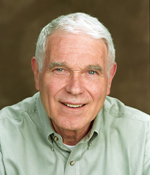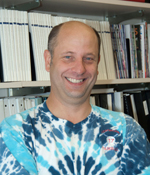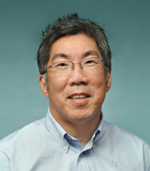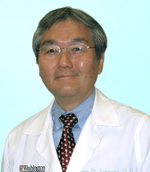Four Washington University faculty have been named fellows of the American Association for the Advancement of Science (AAAS), the world’s largest general scientific society.
The highest honor awarded by AAAS, the rank of fellow is bestowed upon members by their peers in recognition of scientifically or socially distinguished efforts to advance science or its applications.
Of the Washington University honorees, three are from the School of Medicine and one is from Arts & Sciences. They are:

Garland E. Allen, Ph.D., professor of biology in Arts & Sciences, was elected to the Section on History and Philosophy of Science for his sustained commitment to understanding the history and social implications of genetics and eugenics, for exemplary work in biology education and for professional leadership and service.
Allen focuses his research on the history and philosophy of biology — particularly genetics, embryology and evolution — and their interrelationships between 1880-1950.
The major focus of his research is on the history of genetics and its relationship to eugenics and agriculture in the United States in the first half of the 20th century. Allen explores the funding and institutional base for eugenics: who paid for it, what were their motives, and what was the scientific or genetic basis for eugenic arguments.
The history of eugenics provides a number of insights into the interrelationships between science and its social context and raises many issues of ethical, legal and social importance that are surfacing in the wake of the Human Genome Project. Allen has repeatedly used his knowledge of the history of eugenics to inform the ongoing debate over behavior genetics and to argue against the notion that genes correspond in any simple way to complex traits.
Allen also has been involved in the Cold Spring Harbor Laboratory’s creation of an online archive on the American Eugenics Movement and is finishing a book on the history of genetics in the 20th century. He is also preparing a study of the relationship between the eugenics and conservation movements in the United States between 1880-1965.

Scott Hultgren, Ph.D., the Helen L. Stoever Professor of Molecular Microbiology, was elected to the Section on Medical Sciences for distinguished contributions based on a multidisciplinary approach to identify virulence factors in the pathogenesis of uropathogenic E. coli. These studies are leading to new and better treatments and clinical diagnoses for urinary tract infections (UTI).
Scientists estimate half of all women will experience a UTI at some point in her life, and additional recurrent UTIs will affect 20 percent to 40 percent of these patients. Hultgren, also director of the Center for Women’s Infectious Disease Research, is using a variety of techniques to better understand how the bacteria that cause these infections overwhelm the body’s defense mechanisms. In many instances, this involves the bacteria’s ability to move through distinct developmental stages, including stages where they form biofilms, cooperative networks in which individual bacteria work together to create structures that collectively increase their resistance to immune system attacks.
Hultgren also suspects that some bacteria involved in these infections may be able to slip into an inactive, quiescent phase that lets them return at a later date as a recurrent infection.

Andrey S. Shaw, M.D., the Emil R. Unanue Professor of Immunobiology in Pathology and Immunology and a Howard Hughes Medical Institute Investigator, was elected to the Section on Biological Sciences for distinguished contributions to the field of immunology, particularly for studies of signaling in T-cells.
In addition to his work on T-cells, Shaw, also director of the Division of Immunobiology, works with podocytes, or cells in a kidney structure called the glomerulus that filter the blood to make urine.
In 1999, Shaw found a gene he had identified in T-cells that turned out to be essential for normal podocyte function. Loss of the gene led to kidney failure in mice. Now his lab is involved in a complex search for other genes that are essential to podocyte function and may as a result also be linked to kidney failure.

Wayne M. Yokoyama, M.D., the Sam J. Levin and Audrey Loew Levin Chair for Research on Arthritis, professor of medicine, a Howard Hughes Medical Institute investigator and director of the Medical Scientist Training Program, was elected to the Section on Medical Sciences for distinguished contributions in characterizing natural killer (NK) cell receptors, their ligands and their functions.
Yokoyama is a leader in the study of NK cells, immune system cells that are known to kill certain types of tumors. The cells also play a major role in the body’s defenses against invaders such as viruses and may be involved in autoimmune conditions such as rheumatoid arthritis.
Yokoyama’s research program focuses on receptors on the surfaces of NK cells that can determine whether they are activated to kill a tumor cell or to produce hormone-like proteins called cytokines that increase resistance to infections.
This year, the 531 members who were named AAAS Fellows were announced in the Dec. 18 issue of the journal Science, published by AAAS. Fellows will be recognized in February at the AAAS Annual Meeting in San Diego.
An international nonprofit organization, AAAS is dedicated to advancing science around the world by serving as an educator, leader, spokesperson and professional association. Founded in 1848, the association includes some 262 affiliated societies and academies of science serving 10 million individuals.